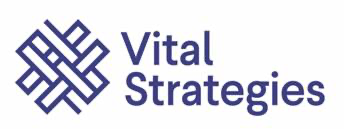

For Immediate Release:
New Michigan Report Identifies Under-prescribing of Treatment for Opioid Use Disorder
Only 3% of providers prescribing treatment at capacity levels; report maps out a strategy to reduce overdose deaths by promoting access to buprenorphine
JUNE 8, 2022 (LANSING, MICH) — A new report from the Michigan Department of Licensing and Regulatory Affairs and Vital Strategies suggests that the buprenorphine treatment gap for people with opioid use disorder is partially reinforced by practitioners prescribing below their authorized patient capacities. The findings of this report come amidst an intensifying overdose crisis that claimed over 100,000 lives last year.
Based on a survey of 687 providers in Michigan, only 3% of survey respondents were prescribing buprenorphine treatment near or at their patient capacity. These findings were released as part of a new report examining buprenorphine treatment prescribing practices, common barriers, and facilitators that could help increase prescribing of lifesaving medications for opioid use disorder in the state of Michigan. The report highlights seven data-driven recommendations to increase access to buprenorphine treatment, which include broadening telemedicine use, eliminating geographically based barriers to treatment, and increasing prescriber mentorship opportunities to expand access to this lifesaving treatment.
“We encourage licensed practitioners to use any and all safe and approved treatments for opioid use disorder,” said Orlene Hawks, Director of the Michigan Department of Licensing and Regulatory Affairs. “This study is significant because it identifies that many practitioners are prescribing below their patient capacity. It is important for licensed practitioners to fully utilize this lifesaving treatment option.”
Michigan was one of several states that experienced a surge in overdose deaths during the COVID-19 emergency, with a 14% increase from 2019 to 2020. Buprenorphine, a medication used to treat opioid use disorder, is one of the most effective treatments in preventing opioid overdoses. Qualified practitioners with the Drug Addiction Treatment Act of 2000 Waiver (commonly referred to as the DATA 2000 Waiver or X-waiver) can prescribe buprenorphine treatment in office-based settings. Bridging the gap between the demand for buprenorphine treatment and access is urgently needed to reverse this trend.
“It is important to understand the broad impact of preventable opioid-related deaths and the potential to reverse the trends of mortality by maximizing access to professionals who can and are willing to prescribe buprenorphine and other medications for addiction treatment,” said Dr. Debra Pinals Medical Director for Behavioral Health and Forensic Programs for the Michigan Department of Health and Human Services. “We are continuously looking to reduce barriers for prescribers interested in engaging in this work, and there are ways to get assistance such as through the MI-CARES program to undergo a course of study and through the Michigan Opioid Collaborative for actual clinical case consultation.”
Nearly one in five survey respondents who were X-waivered had never prescribed this effective treatment. Findings from the survey, which represented 63 of 83 counties in Michigan suggest that it is not enough for practitioners to obtain the federal X-waiver to prescribe buprenorphine treatment; barriers to prescribing buprenorphine treatment must also be removed to expand access to treatment. Attitudes toward the role of counseling in buprenorphine treatment, lack of access to addiction medicine specialists, and time constraints on their practices also emerged as some of the most salient barriers to managing more patients on buprenorphine for survey respondents.
“While obtaining an X-waiver is an important first step for qualified practitioners to expand access to buprenorphine treatment, the report reveals that additional strategies beyond this are essential. The most prominent geographical, attitudinal, and organizational barriers identified in the survey must be mitigated to cultivate an environment whereby X-waivered practitioners can provide this lifesaving treatment to significantly more patients,” said Valencia Lyle, the report author.
The report was produced by the Michigan Department of Licensing and Regulatory Affairs with funding and technical support from Vital Strategies through the Bloomberg Philanthropies Overdose Prevention Initiative.
About the Michigan Department of Licensing and Regulatory Affairs
LARA supports business growth and job creation while safeguarding Michigan’s residents through a simple, fair, efficient, and transparent regulatory structure. The department oversees the licensing and regulation of more than two million individuals and entities covering health professionals and facilities, skilled-trades and other professional occupations, liquor licenses, medical and adult-use marihuana, corporations and securities, construction services, fire services, and indigent defense.
About Vital Strategies
Vital Strategies is a global health organization that believes every person should be protected by a strong public health system. In November 2021, Bloomberg Philanthropies announced a five-year, $120 million investment to help combat the overdose crisis in the hard-hit states of Kentucky, New Jersey, New Mexico, North Carolina and Wisconsin. The initiative builds on work of the past three years in Michigan and Pennsylvania, launched in 2018 with $50 million and expands the work to promote improved federal policies. The partnership between Vital Strategies, Pew Charitable Trusts, Johns Hopkins University, CDC Foundation, and Global Health Advocacy Incubator is helping to strengthen and scale up evidence-based, data-driven policies and interventions to reduce overdose risks and save lives.
Media Contacts:
Suzanne Thelen: Michigan Department of Licensing and Regulatory Affairs
ThelenS17@michigan.gov Ph: 517-643-6177
Tony Newman: Vital Strategies
tnewman@vitalstrategies.org Ph: 646-335-5384